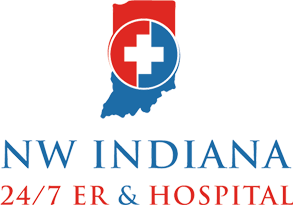March 21-27 is National Poison Prevention Week, an issue that may be more prevalent than you think.
Every day, over 300 children in the U.S. receive emergency medical care due to being poisoned. And according to the National Capital Poison Center, someone calls the U.S. poison control center about every 12 seconds. Hospitals, Emergency Rooms, and poison control centers help millions of parents and caregivers each year.
Keep reading to learn more about how to protect your children and prevent accidental poisoning!
What to Know
Here are 3 important things you should know about poison:
- Anything can be poisonous when used in the wrong way, by the wrong person, or the wrong amount—even water.
- You can be poisoned without swallowing something. Poisoning can happen through the skin, eyes, lungs, and mouth.
- Most cases of childhood poisoning can be prevented with proper safe storage practices.
What to Watch For
According to the Children’s Environmental Health Network, these are the top 10 substances poison control gets called about:
- Cosmetics and personal care products—hand sanitizer, deodorant, and nail polish remover
- Pain-relieving medicines—both over the counter and prescription
- Foreign bodies—toys and coins
- Medicinal creams—acne cream and hydrocortisone cream
- Vitamins—especially chewable vitamins that taste good
- Plants—both indoor and outdoor
- Household cleaning products
- Anti-allergy medicines
- Pesticides and insect repellants
- Dietary Supplements, herbals, and homeopathic remedies
What to Do
Children are naturally curious, so exploring their surroundings is inevitable. A household can become dangerous if it’s not prepped to avoid unwanted injuries and accidents. We all know how sneaky and fast kids act; taking your eye off of them for just a few seconds could mean the harm has already been done. To protect your children and your peace of mind, we encourage everyone to childproof their homes.
Safely store these potentially poisonous items out of children’s reach:
- All pharmaceuticals and medicine—including over-the-counter meds, supplements, and vitamins
- Laundry and cleaning supplies—tide pods, Windex, bleach, etc.
- Tobacco and e-cigarette products—especially liquids containing nicotine
- Batteries—especially button batteries found in key fobs or musical greeting cards
- Household chemicals—antifreeze, pesticides, insect repellents, etc.
- Anything that contains alcohol—alcoholic beverages, hand sanitizer, mouthwash, etc.
- Oils and flammable liquids—gasoline, fragrance oils, essential oils, engine oil, hairspray, nail polish remover
Although common symptoms of poisoning include nausea, pain, vomiting, confusion, trouble breathing, and seizure, they don’t have to be present before you seek help, especially when it concerns a child.
If you’re concerned about something your child got into, don’t hesitate to call 1-800-222-1222, go to poisonhelp.org/help, or visit our ER for a quick evaluation.
We understand how stressful these situations are, and we’re available to help 24/7, 365 days a year. Our experienced physicians provide care for all ages, from babies to elderly patients. And our special pediatric exam room is specifically designed to be a comfortable environment for children to feel at ease. For fast, convenient care when it matters, we’re here!



0 Comments